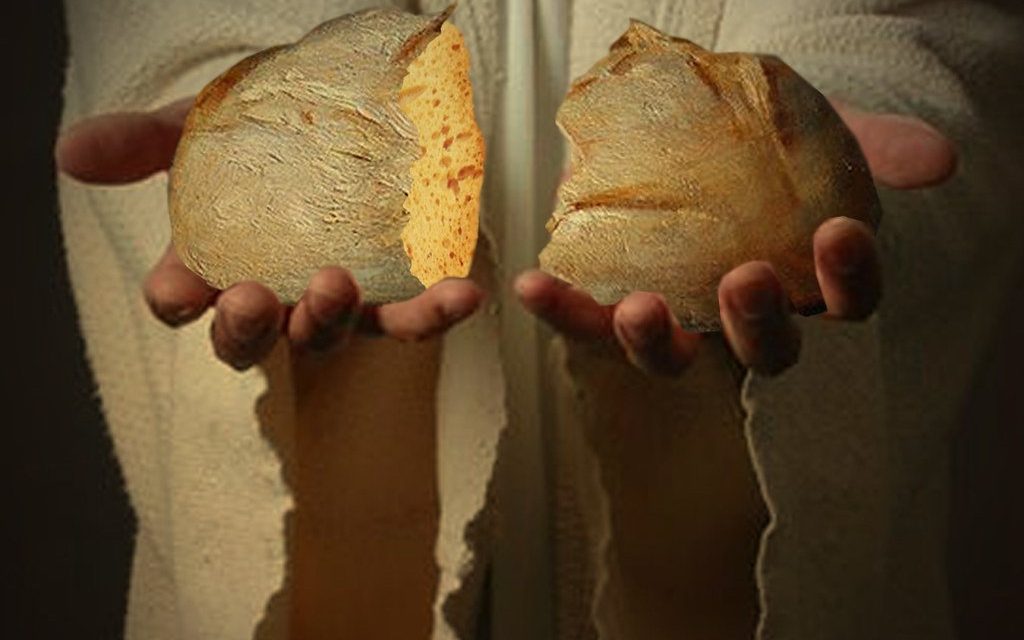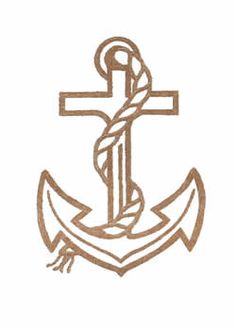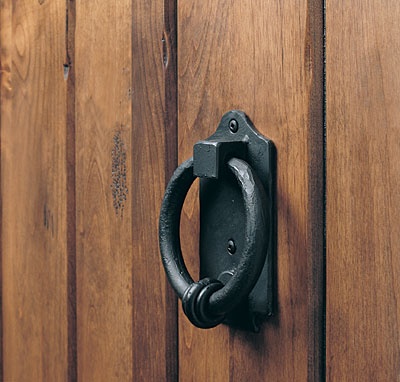Dt 8:2-3, 14b-16a
Ps 147:12-13, 14-15, 19-20
1 Cor 10:16-17
Jn 6:51-58
Today’s Solemnity is one of my favorites in the church year, as it asks us to reflect on what it means not only to receive the Body and Blood of Christ – but to be the Body of Christ.
The scriptures we read for today remind us: God gives us bread from heaven, and has been giving this bread to God’s people for millennia. Yet this bread represents something edgy, something new, something that comes with a cost when we eat it.
In the first reading, Moses asks the people to remember that God had brought them through the desert, a place of testing, for a particular purpose. They have been brought from the land of slavery through the “terrible desert” to a new place. Did the people intend to live God’s commandments and be God’s people, or not? Would they take on the challenge of living on the edge, without quite ever knowing where they are going or what they will eat – yet with faith that God is there and present and aware of their needs.
A key part of the test, Moses says, is that the people wandered through the desert while hungry – but encountered manna, “a food unknown to you and your fathers.” Moses’ emphasis on manna as unknown food suggests that perhaps the real test for the Israelites is not the wandering through the desert part, exactly – but the fact that they are encountering an entirely new way of living. New bread, new laws, new community.
Remembering God’s actions – God’s saving actions in the midst of slavery in Egypt or in that terrible desert – is meant to lead to a sense of free fall, a sense of dependence on God’s grace. This is not meant to be a stuffy kind of remembrance that people think of when they think about the word “history.” This is not a record meant to be stuffed in a book and placed on a shelf. This is a life meant to be lived, and bread leads us to that life.
Paul’s first letter to the Corinthians similarly reminds us of the edgy life of witness that we have because we eat this bread and drink this cup. We are participating in Christ’s very blood and body – which means, in his life, death, resurrection and ascension – and we therefore also participate in Christ’s Body. We are Christ’s Body and we live God’s edgy life of meeting, encountering, healing, witnessing (and more) to people.
It makes sense that in the Gospel, Jesus tells us that we remain in him when we eat this flesh and drink this blood, this bread of heaven. We become part of life on the edge, part of an entirely new life. In this life, we don’t quite know exactly where God leads, but we know that God leads us on, and we are part of that group of people who are fed by God.
How shall we celebrate today? Of course, with the feast at God’s table. And then perhaps by continuing to celebrate this amazing Body of Christ of which we are a part. The most memorable celebration of today’s solemnity was at a religious community. Following mass, we – monks and retreatants – trooped into the dining room to continue to celebrate with a feast – and it was an amazing feast of breads! There was fresh strawberry bread, cornbread, pitta, sourdough, and many more that I cannot now remember. What a way to continue the feast of Jesus – by celebrating the many peoples, from many cultures, and times, who are members of the Body of Christ. It was a continuation of our mass in so many ways – and it impressed me so much that I have continued this practice at my own home. So I bequeath it to you here.
But then even more: let us go onward to the unexpected life that God places before us. “Unexpected” does not necessarily mean off the beaten path, or a wild adventure of the bungee-jumping variety. It may be as unexpected as the stranger you encounter in a store or on the road or at work this week.





